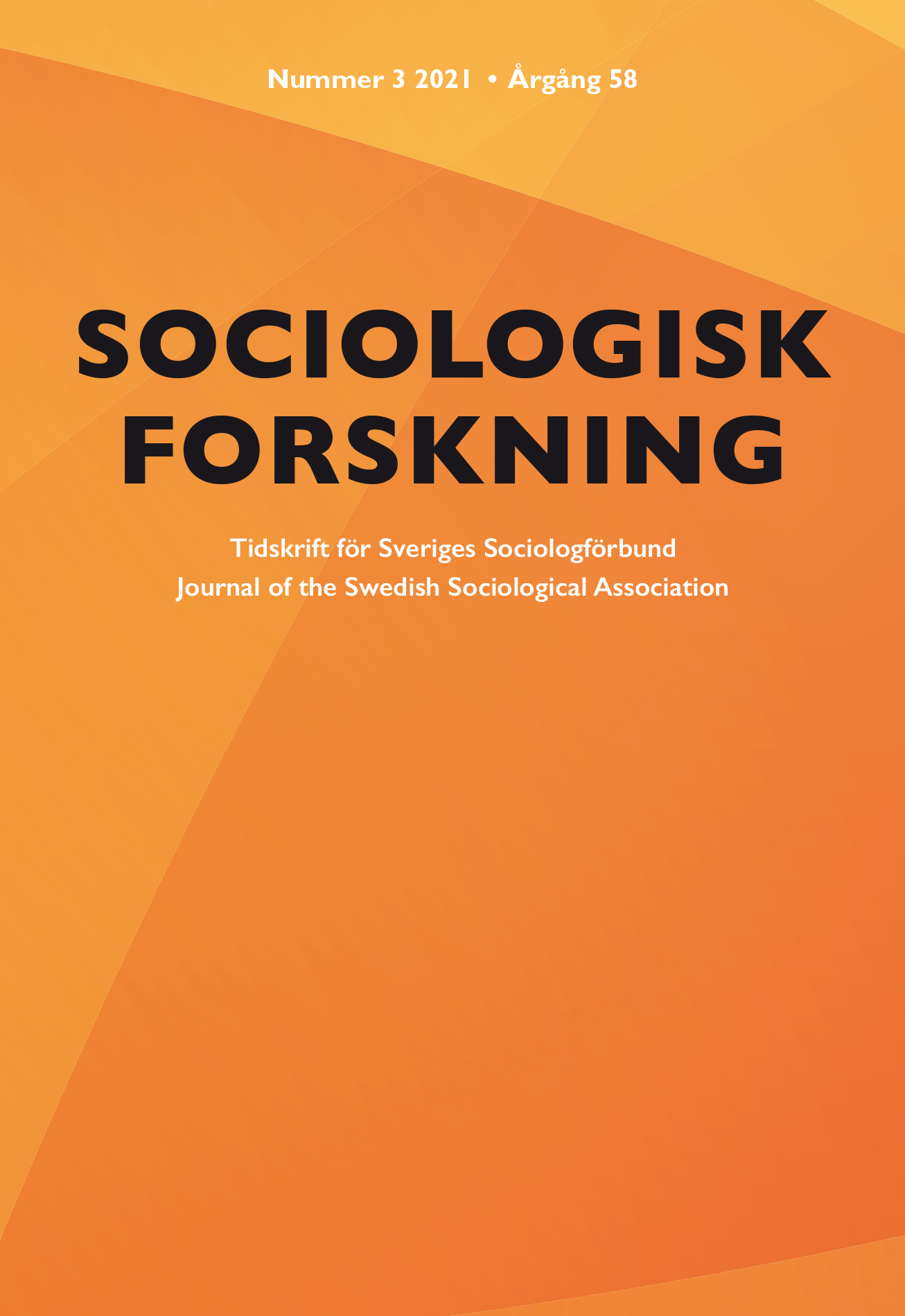#Metoo
A struggle for social recognition and justice
DOI:
https://doi.org/10.37062/sf.58.22500Keywords:
sexual harassment, #metoo, social recognition, epistemic injusticeAbstract
In the article Honneth’s theory of social recognition and Frickers’ theory of epistemic injustice is used to analyse testimonies of sexual harassment. The study is based on a content analysis of the testimonies about sexual harassment that are included in the 65 Swedish #metoo calls. Those who testified talk about what, with help of Honneth’s theory, can be described as a systematic withholding of social recognition. They are denied solidarity and rights through sexualized physical and psychological abuse, which has a negative impact on their basic self-confidence, self-respect, and self-esteem. In practice, the actions of the perpetrators result in both personal suffering for the women who has been subjected to sexual harassment and to the exclusion of them from social contexts. The latter takes place by the women either leaving the context in which they have been subjected to sexual harassment or to their participation in the context being conditional. For example, they must refrain from telling what they have been through or they lack support when they do. In the article, the difficulty of mobilizing support for those who are subjected to sexual harassment is interpreted as an effect of epistemic injustice.
Downloads
Published
How to Cite
Issue
Section
License
Copyright (c) 2021 Author and journal

This work is licensed under a Creative Commons Attribution-NonCommercial-NoDerivatives 4.0 International License.
All content in Sociologisk Forskning is published with immediate open access, under the Creative Commons license CC BY-NC-ND 4.0.
All content may be read, downloaded, shared and printed for non-commercial purposes, free and without fees. Contents may not be altered. When content is reused, author, source and a link to the copyright licence must be provided. The author retains copyright to their content. No publication fees are charged.





